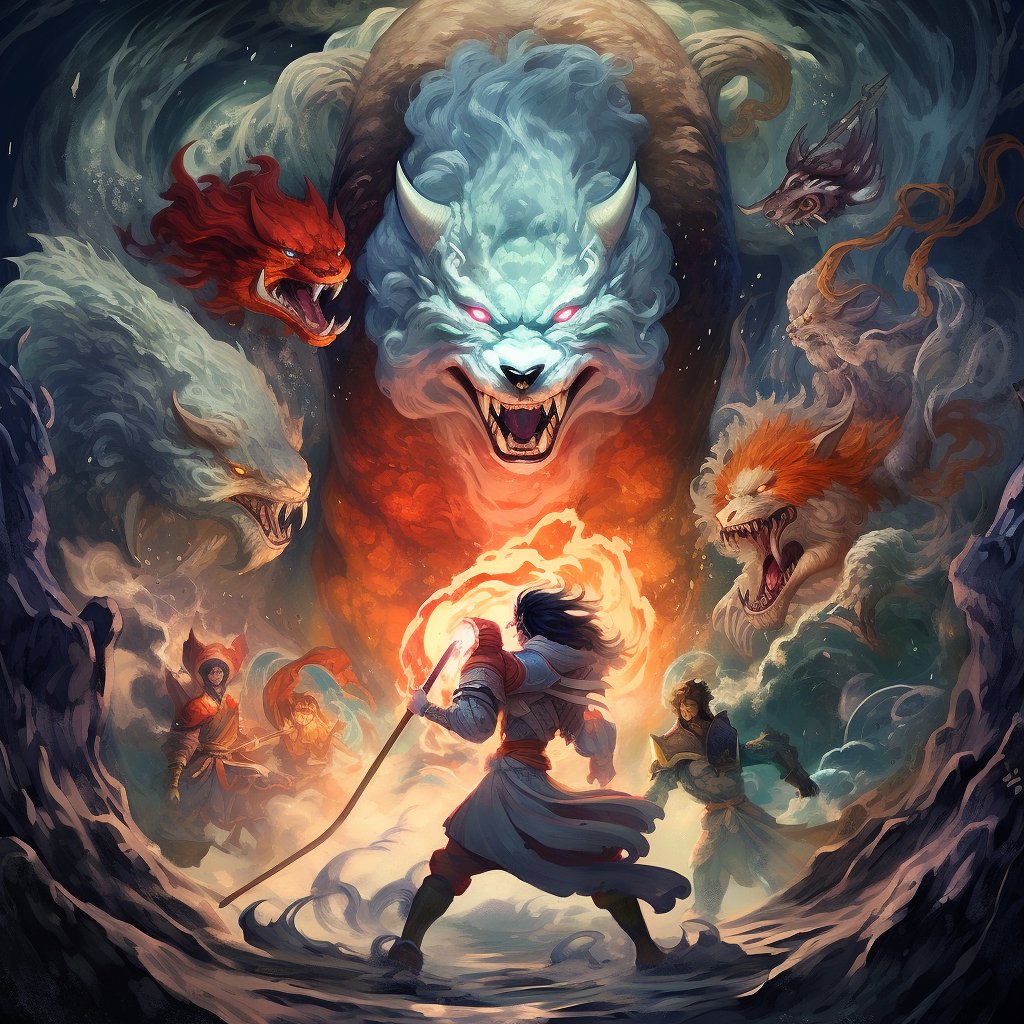Japanese mythology is an intricate web of tales, deities, and creatures that form the backbone of Japan’s rich cultural and spiritual heritage. This post delves into the captivating realm of Japanese myths, unraveling the stories and symbols that have been integral to Japanese tradition for centuries.

The Origins: Shinto and Japanese Mythology
At the core of Japanese mythology is Shinto, the indigenous spirituality of Japan. Shinto, which means “the way of the gods,” is a practice that venerates kami, a term that can be loosely translated to gods or spirits. These kami are believed to inhabit all aspects of nature, making the natural world a sacred realm.

The Creation Myth: From Chaos to Order
The Japanese creation myth, as chronicled in the “Kojiki” and “Nihon Shoki,” the oldest records of Japanese history, narrates a tale of creation from chaos. In this myth, the universe begins in a state of formlessness, which gradually transforms into a more ordered existence. Central to this narrative are Izanagi and Izanami, divine beings who create the Japanese islands and deities.

The Pantheon of Japanese Gods
Japanese mythology is populated by a diverse array of gods and goddesses, each embodying different aspects of nature and human experience.
Amaterasu: The Sun Goddess
One of the most revered deities in Japanese mythology is Amaterasu, the sun goddess. Her story, particularly her conflict with her brother, the storm god Susanoo, and her subsequent withdrawal into a cave, reflects the importance of harmony and balance in Japanese culture.

Susanoo: The Storm God
Susanoo, the powerful and unpredictable storm god, is known for his tumultuous disposition. His most famous myth involves the defeat of Yamata-no-Orochi, an eight-headed serpent, a story that highlights bravery and the triumph over chaos and destruction.

Mythical Creatures and Yokai
Japanese mythology is also rich in tales of yokai, a term encompassing a wide range of supernatural creatures and spirits. These tales, often part of folk traditions, speak to the deep connection between the natural and supernatural worlds in Japanese culture.
Tengu: The Protective Spirits
Tengu, often depicted as bird-like creatures, are protective spirits associated with mountains and forests. They are known to be both benevolent guardians and mischievous tricksters, reflecting the dual nature of the natural world.

Kitsune: The Shape-shifting Foxes
Kitsune, or fox spirits, are another popular figure in Japanese folklore. Known for their intelligence and magical abilities, including shape-shifting, kitsune can be both malevolent and benevolent, often serving as messengers of the gods.

Japanese Mythology in Contemporary Culture
The influence of Japanese mythology extends beyond ancient texts and rituals; it permeates modern Japanese art, literature, and media. From the classic works of Studio Ghibli to contemporary manga and anime, mythical themes and characters continue to captivate audiences, both in Japan and worldwide.

Conclusion
Japanese mythology, with its rich narratives and complex characters, offers a glimpse into the spiritual heart of Japan. It’s a world where gods walk among mortals, spirits inhabit every corner of the natural world, and mythical tales continue to inspire and instruct. For anyone exploring the depths of cultural stories, Japanese mythology is an enthralling realm, brimming with lessons, adventures, and an enduring sense of wonder.
